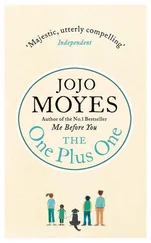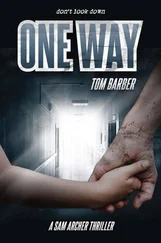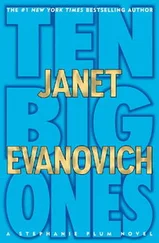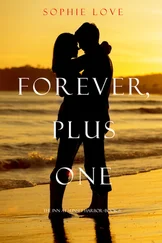Tears were welling into his eyes. He kept staring at the spot above Carella’s shoulder.
“Ain’t he got a father, that guy? How could he just…just shoot him like that, how could he make himself pull the trigger? This is a man who was standing down there, a man, my father, for Christ’s sake! Don’t he know what he done? Don’t he know this man is never gonna go to his store again, he’s never gonna argue with the customers, he’s never gonna laugh or nothing? How could he do that, will you tell me?”
Richard paused. His voice lowered. “I didn’t even see him today. He left the house before I got up this morning. My wife and I, we live right upstairs. Every morning I usually meet him, we leave about the same time to go to work. I work in an aircraft-parts factory on Two Thirty-third. But this morning, I had a little virus, I was running a small fever, my wife said stay in bed, so she called in sick. And I didn’t get to see my father. Not even to say, ‘Hello, Pop, how’s it going?’ So today, somebody kills him. The day I didn’t see him.”
“Have you got any idea who might have done this?” Carella asked.
“No.”
“Has anyone been threatening your father? Had he received any notes or phone calls, or…?”
“No.”
“Any trouble with any of the businessmen along the avenue?”
“None.” Richard shook his head again. “Everybody liked him. This don’t make sense. Everybody liked him.” He rubbed at his nose with his forefinger, sniffed, and said again, “I didn’t even see him today. Not even to say hello.”
The next morning, Wednesday, May 2, Steve Carella went in to see Detective Lieutenant Byrnes. He told the lieutenant that the case was taking some unexpected twists, that he and Meyer thought they’d had at least something to go on, but that they weren’t quite so sure of that anymore, and that there was a strong possibility the killer was a nut. In view of the circumstances, Carella told the lieutenant, he would like additional help from whomever Byrnes could spare on the squad, and he would also like to request that Byrnes put in for help from the other squads in the city, since the killer seemed to be moving from place to place, and since legwork alone was taking up a considerable amount of time that could just possibly go into deduction, if there was anything to deduce, which there didn’t seem to be at the moment.
Byrnes listened to everything Carella had to say, and told him he would do everything he could as soon as he had a chance to look over his duty schedules and to call the Chief of Detectives downtown at headquarters. But Carella had to wait until much later that day before he got the help he requested. And then, unexpectedly, the help came from the District Attorney’s office.
Andrew Mulligan was an assistant district attorney who wanted to be governor of the state one day, and after that—now that Kennedy had broken the ground for Catholics—he figured it might be nice to be president. His office was downtown on High Street adjacent to the Criminal Courts Building, just across the street from Police Headquarters. Byrnes had placed his call to the Chief of Detectives at precisely 11:15 A.M., but Mulligan didn’t know that, since he’d been in court at the time. In fact, Mulligan had no notion that the men of the 87th Squad were working on four possibly related murders, nor did he have any idea that he would soon be helping them with the case. At the moment, he was working with the DA himself on a case involving income-tax evasion. Mulligan didn’t know that the DA himself wanted to be governor of the state, too, but even if he had known, it wouldn’t have bothered him. The particular case they were trying together involved a very big-shot racketeer and was getting a lot of headlines in the local press. Mulligan liked headlines. It annoyed him that there was a jazz musician named Gerry Mulligan, who wasn’t even a relation. He felt that when anyone mentioned the name Mulligan, or whenever the name Mulligan appeared in print, it should instantly bring to mind the image of a fighting assistant district attorney, and not some crummy bongo drummer, or whatever this other Mulligan was.
He had, in fairness to the case he would soon become a part of, tried four murder cases since he’d begun working with the DA’s office. He liked murder cases because they usually guaranteed a lot of newspaper coverage. His first murder case had been brought to him by the detectives of the 49th Squad, an open-and-shut Murder One that anyone fresh out of law school could have tried successfully. Mulligan milked the case for all it was worth. The trial should have been over and done with in two weeks at the most. Mulligan stretched it to a month, with headlines screaming every day, and would have stretched it even further if the judge hadn’t begun issuing some subtle hints about the “seemingly inexhaustible supply of rhetoric at this trial.” Mulligan got his headlines, and he also got his conviction, and then—because nothing succeeds like success, that’s how the saying goes, go tell it to Larry Parks—he was assigned another murder case shortly thereafter, and then another, and then yet another, the number of murders committed in that fair city being almost as inexhaustible as the supply of rhetoric at his first trial.
As he left the courthouse and walked down the broad flat steps in front of the building, he was wondering what he’d be working on after they had demolished this cheap racketeer with his phony meat market covering up a multimillion-dollar vice ring. He did not know he would become involved in the case the 87th was now working on, but he certainly hoped his next one would be another murder trial. He was also thinking about what he would order for lunch.
The restaurant he habitually frequented was off on one of the side streets bordering the financial district. Most of the lawyers who had any traffic with the downtown courts lunched there, and he enjoyed the quiet buzz that usually accompanied his entrance into the place. He had no idea what any of the attorneys were whispering about him behind their hands, but he was sure it was good. As he entered the restaurant that afternoon, he saw two young lawyers interrupt their conversation and turn in his direction. He did not acknowledge their stares in any way. He stood unobtrusively immense just inside the doorway, the courtroom dynamo in his civilian disguise, and waited for the proprietress of the restaurant to discover him.
She discovered him almost immediately.
“Oh, Mr. Mulligan,” she said, distressed. “I did not know you were coming today. Your table is taken.”
“Oh?” Mulligan said, his eyebrows raising just a trifle, an only faintly interested expression on his face. “Didn’t my secretary call?”
“No, Mr. Mulligan, I’m sorry. She didn’t.”
“Well…” Mulligan said, and he turned a gently anticipatory inquiring look on the flustered proprietress, a look that firmly demanded, “Well, what do you propose to do about this intolerable set of circumstances?”
The proprietress knew how to read looks, because she’d been dealing with lawyers both here and in the old country, and they were all the same, they all stank.
“I’ll get you another table, Mr. Mulligan,” she said, “a very nice table in the other room. Come with me, I’ll take care of you.”
She started to turn, and then stopped in her tracks, and a smile flowered on her face, and she said, “Wait, they’re leaving. Look, they’re just paying their check. See, Mr. Mulligan? It all turned out all right, after all. You can have your own table.”
“I appreciate that,” Mulligan said. “Sincerely, I do.”
The two gentlemen sitting at Mulligan’s customary table paid the check, rose, lit their cigars, and left the restaurant. The waiter changed the tablecloth, and held the chair for Mulligan as he sat. Mulligan pulled the chair close to the table and, without looking at the waiter, said, “Dewar’s on the rocks, please,” and then relaxed and looked through the huge plate-glass window at the street outside. He enjoyed sitting in the same spot each day, because it made him easier to identify. He particularly enjoyed this table immediately adjacent to the window because it enabled him to be identified from outside the restaurant as well as inside. A fellow attorney passed the table, said, “Hello, Andy, how are you?” and touched him on the shoulder. Mulligan smiled in response and wondered where the hell his scotch was. The waiter brought it almost instantly.
Читать дальше












